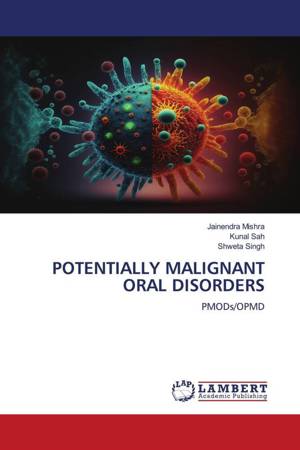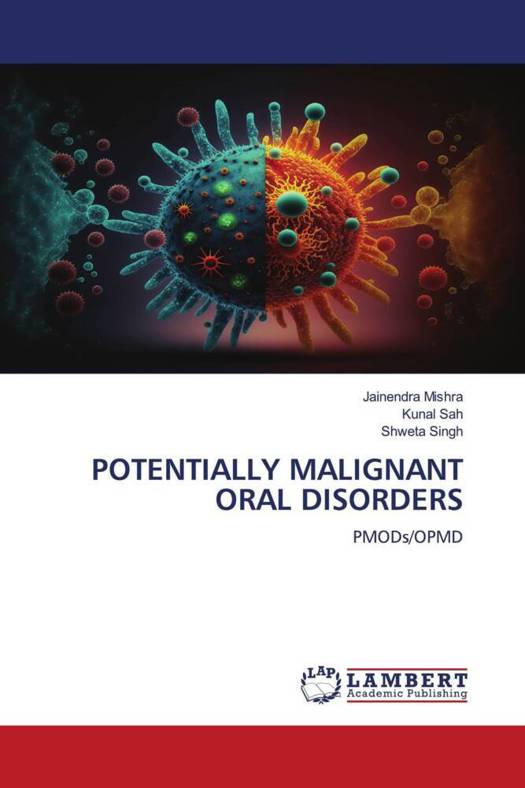
- Afhalen na 1 uur in een winkel met voorraad
- Gratis thuislevering in België vanaf € 30
- Ruim aanbod met 7 miljoen producten
- Afhalen na 1 uur in een winkel met voorraad
- Gratis thuislevering in België vanaf € 30
- Ruim aanbod met 7 miljoen producten
Zoeken
POTENTIALLY MALIGNANT ORAL DISORDERS
PMODs/OPMD. DE
Jainendra Mishra, Kunal Sah, Shweta Singh
Paperback | Engels
€ 43,45
+ 86 punten
Omschrijving
Potentially Malignant Oral Disorders (PMODS) represent a group of conditions of the oral mucosa that carry an increased risk of transformation into malignancy, most commonly oral squamous cell carcinoma. These lesions, including leukoplakia, erythroplakia, oral lichen planus, oral submucous fibrosis, and actinic cheilitis, often exhibit clinical and histopathological features that serve as early indicators of carcinogenic potential. Early detection and intervention are critical, as the progression to malignancy can be mitigated with appropriate clinical surveillance and management. This abstract provides an overview of the aetiology, risk factors, diagnostic approaches, and current therapeutic strategies associated with PMODs. Emphasis is placed on the role of biopsy and histopathological grading of epithelial dysplasia, as well as lifestyle modifications, such as tobacco and alcohol cessation, which are pivotal in reducing disease progression. A multidisciplinary approach, involving dental professionals, pathologists, and oncologists, is essential for optimal patient outcomes.
Specificaties
Betrokkenen
- Auteur(s):
- Uitgeverij:
Inhoud
- Aantal bladzijden:
- 52
- Taal:
- Engels
Eigenschappen
- Productcode (EAN):
- 9786208223113
- Uitvoering:
- Paperback
- Afmetingen:
- 150 mm x 220 mm

Alleen bij Standaard Boekhandel
+ 86 punten op je klantenkaart van Standaard Boekhandel
Beoordelingen
We publiceren alleen reviews die voldoen aan de voorwaarden voor reviews. Bekijk onze voorwaarden voor reviews.











